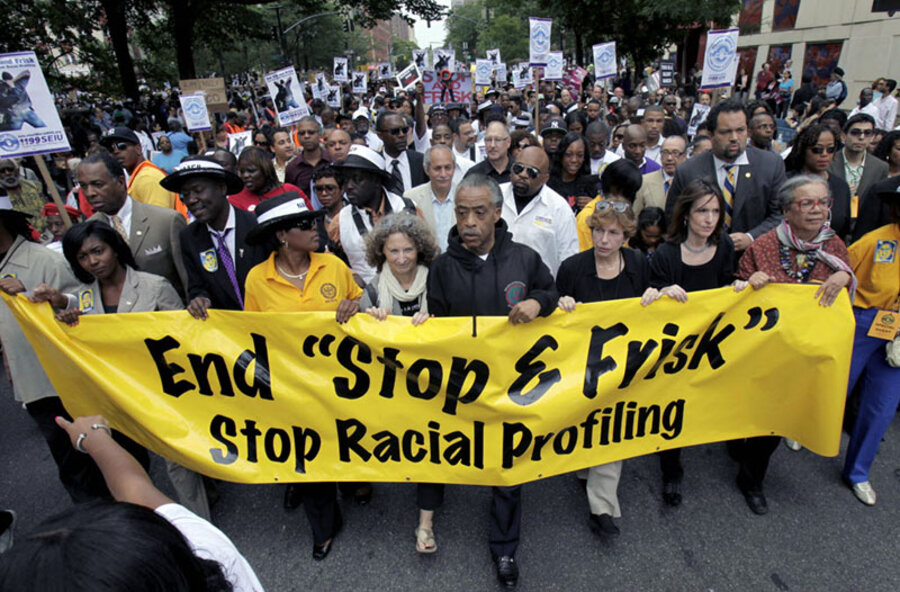Chicago police place tighter controls on 'stop-and-frisk' policy
Loading...
Minorities in Chicago may be less likely to be stopped and frisked without adequate legal justification, following an agreement between state police and the American Civil Liberties Union, announced Friday, the Associated Press reported.
The Chicago Police Department will work with the ACLU to allow independent evaluations of its stop-and-frisk procedures, which critics and research say disproportionately target minorities.
The partnership “calls for increased public disclosure and more officer training” and will require former US Magistrate Judge Arlander Keys to provide public reports, twice a year, on Chicago police investigatory stops and pat-downs, according to AP.
It follows an ACLU study published in March, which found Chicago police lead the nation in using the controversial tactics and often lack sufficient justification when employing them.
The investigation said the CPD conducted more than a quarter million stops of civilians that did not lead to an arrest during the summer of 2014. It also noted “African Americans represent nearly 72% of all the stops in the City of Chicago, as compared to the reality that African Americans represent only about 32% of the City’s population.”
“What this data shows should be a wake-up call for residents of the City,” said Karen Sheley, senior legal counsel and one of the authors of the report, according to an ACLU press release. “CPD is engaging in wholesale stop-and-frisks of African-American youth, without any link to criminal activity in most cases.”
Chicago Police Superintendent Garry McCarthy said in a statement that the department is committed to fighting crime effectively and fairly: "We believe policing in Chicago must be strictly based on crime data, patterns, statistics and community intelligence, and this unprecedented agreement with the ACLU is a demonstration of CPD's commitment to fairness, respect, transparency, and underscores our willingness to work side by side with everyone as we work toward our shared goal of keeping our neighborhoods safe."
Controversy over similar policies in New York City and Newark, N.J., have resulted in court-imposed limits on stop-and-frisk, and New York's mayor Bill de Blasio ran, in part, on an anti-stop-and-frisk platform, according to AP.
The Chicago Sun Times reports that officers will now have to be more rigorous when noting details on the “contact cards” they are required to fill out when they stop someone on the street for questioning.
This information includes facts about the person’s name, race, sex, and why they have been contacted. Now, the CPD will also have to input data about “whether the person was frisked, whether contraband like a gun was found, and whether there was an arrest, warning, or citation,” according to The Sun Times.
Chicago Police Superintendent Mr. McCarthy told The Sun Times he thinks his officers make valid stops but could “better articulate” on contact cards why they stop someone.
“If we can do it better, I am willing to try,” he said.







